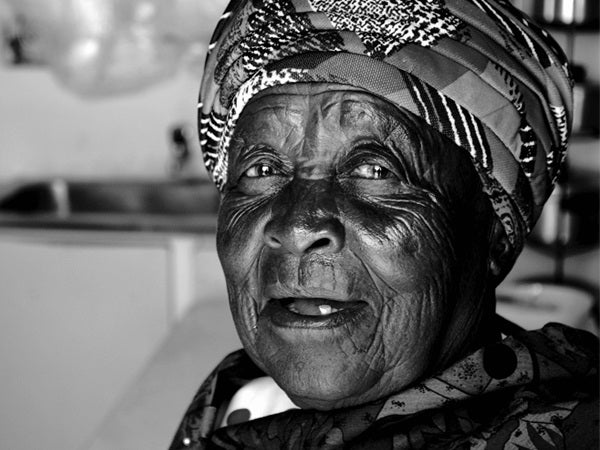Three studies by researchers affiliated with Longitudinal Study of an INDEPTH Community in South Africa (HAALSI) have been published this month shedding light on the status of cognitive function, the level of daily living limitations and unmet care needs, and the impact of multiple illnesses on the likelihood of progressing along the recommended “continuum of care” among those aging in South Africa. Read the abstracts and learn more…
Marcia Castro and David Williams named as new department chairs
Congratulations to faculty members Marcia Castro and David Williams on being named as chairs of the Department of Global Health and Population, and the Department of Social and Behavioral Sciences, respectively. Learn more in this release by the Harvard Chan School Dean, Michelle Williams.
Can being optimistic help women live both a healthier and longer life?
Previous research has linked an optimistic attitude with a longer life, but now a new study authored by a team that includes our faculty member Laura Kubzansky expands the positive benefits of optimism to include a healthier life as well.
Congratulations to faculty members for being recognized as highly cited researchers
The following faculty members have been named this year to Clarivate Analytic’s annual list of Highly Cited Researchers—those who rank in the top 1% for citations by their peers—in one or two fields: David Cutler Miguel Hernan Ashish Jha Ichiro Kawachi Gary King S V Subramanian Learn more in this news item by the Harvard Chan School.
Stephanie Jones and Meredith Rowe have been awarded named chairs by Harvard Graduate School of Education
Congratulations to our faculty members, Stephanie Jones, PhD, Gerald S. Lesser Professor in Early Childhood Development, and Meredith Rowe, EdD, Saul Zaentz Professor of Early Learning and Development. Learn more about these recent appointments.
Controlling blood pressure at the population level is associated with large life expectancy gains in Indonesia
Harvard Bell Fellow Nikkil Sudharsanan, PhD, has authored a paper published in the International Journal of Epidemiology that reveals that population policies to control systolic blood pressure in Indonesia could result in large (5-6 year) gains in adult life expectancy for men and women across the entire wealth distribution of the country. Given that hypertension is high and rising in many low- and middle-income countries, the paper calls for more…
When is more education not necessarily better for health?
Harvard Bell Fellow Emilie Courtin, PhD, is lead author on a study published in Social Science & Medicine that reveals that when mandatory length of education among teenagers in France was raised from age 14 to 16 by a government policy, those students who were from socioeconomically disadvantaged families were later found to have higher blood pressure and white blood cell counts in adulthood. Harvard Pop Center Director Lisa Berkman and faculty…
Continue reading “When is more education not necessarily better for health?”
Marcia Castro authors book chapter: MALARIA IN THE BRAZILIAN AMAZON
Harvard Pop Center faculty member Marcia Castro, PhD, has authored a chapter in the book Water and Sanitation‐Related Diseases and the Changing Environment: Challenges, Interventions, and Preventive Measures, Second Edition. Castro examines the context of the steady rise in malaria cases in the Brazilian Amazon with the intention of shedding light on strategies to minimize the transmission of the disease.
Harvard Sloan Fellow on Aging and Work wins ASA graduate student paper award
Beth Truesdale, PhD, a Harvard Pop Center Sloan Fellow on Aging and Work, is this year’s recipient of the American Sociological Association’s Section on Aging & the Life Course graduate student paper award. Learn more in the ASA’s Fall newsletter. Congratulations, Beth!
WBUR reports: What Makes Early Education Helpful?
Faculty member Stephanie Jones, PhD, and her research teammates are studying the very early educational patterns of a cohort of 3-and 4-year-olds in Massachusetts to learn about which “micro-features” of an educational system are most helpful in setting up a child for later success. Read about the findings from the first wave of data. Their research is also profiled in this piece in The Washington Post.

